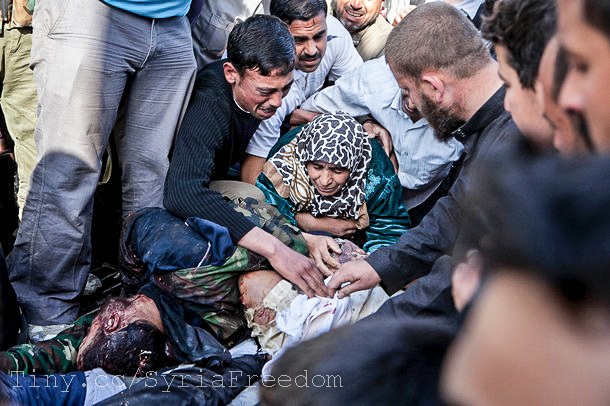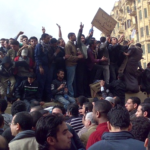Der Weg zu einer politischen Lösung in Syrien
Syria’s troubles go well beyond warring ethnic and confessional groups, to the fact that Syria as a political entity—as a nation—hardly exists. To be sure, the country’s two major cities, Damascus and Aleppo, have very long histories and strong localized identities. However, until the twentieth century, Syria was never a country unto itself. During the half millennium when it was part of the Ottoman Empire, Syria was not even constituted as a single administrative district within the empire, but was split among several districts. The invention of modern Syria following the First World War was based largely on agreements between the French and the British. Syria was not unique in this. Indeed, the modern borders of scores of countries in the developing world were based more on the interests of the colonial powers than on any historical or geographic reality.
Four possible outcomes in Syria
Logically, the current round of Syria’s civil war must end in one of four ways: regime victory, opposition victory, stalemate with no end, or stalemate leading to a political resolution. The first two outcomes are the worst for all parties, and the last is the best plausible outcome. But for the better options to be plausible, both sides must believe they can actually lose the civil war. This is key. Without an acknowledgment of possible defeat, neither the regime nor the opposition will accept a grand bargain in which compromise is central.
The unconventional option
The United States and its allies are wise to resist direct military involvement in Syria in the form of invasion, an air campaign, or a »no-fly zone”, which would quickly lead to direct military engagement. Likewise, Washington has been smart to resist providing advanced military hardware, such as anti-aircraft missiles, to an opposition with significant elements that would just as easily turn these weapons against American targets.
A victory would be a desaster like in Chechnya
That said, the flow of funds and small arms to the opposition from various parties has been an important source of balancing in the civil war, preventing the regime thus far from winning outright. However, the turn toward a Chechnya strategy of using airpower to destroy urban pockets of rebellion does threaten the opposition with outright defeat and should be countered in smart ways. The West was sometimes criticized for adopting a Machiavellian posture during the 1980s Iran-Iraq war by hoping that neither side won outright, but such criticism was not warranted.
Shoot down a handful of Syrian jets
A clear victory for either side would have been a disaster for the region and the world. The same approach is warranted in Syria: working to prevent either side from winning a total victory so that both sides will be more inclined to reach a compromise. To accomplish this, the United States and its allies must consider the use of unconventional warfare techniques undertaken directly by very small numbers of allied forces, not indigenous Syrian ones. For example, Turkish special forces, working secretly with their American ally, could surreptitiously shoot down a handful of Syrian jets that are attacking Syrian cities. That alone might ground the Syrian Air Force entirely.
Such a balancing approach might get us to the best plausible outcome —a negotiated solution — and it would likely prevent either of the two worst outcomes. It is not pretty, but it might actually work.
—
Dieser Beitrag erschien im Blog «Syria Comment»
—
Themenbezogene Interessenbindung der Autorin/des Autors
Glenn E. Robinson ist Professor an der Naval Postgraduate School in Monterey, Kalifornien. Er forschte längere Zeit in Jordanien, ist «Research Fellow» am Truman Institute an der Hebrew Universität in Jerusalem und engagiert sich im Auftrag der US-Entwicklungsbehörde USAID für Entwicklungsprojekte des Mittleren Ostens.










